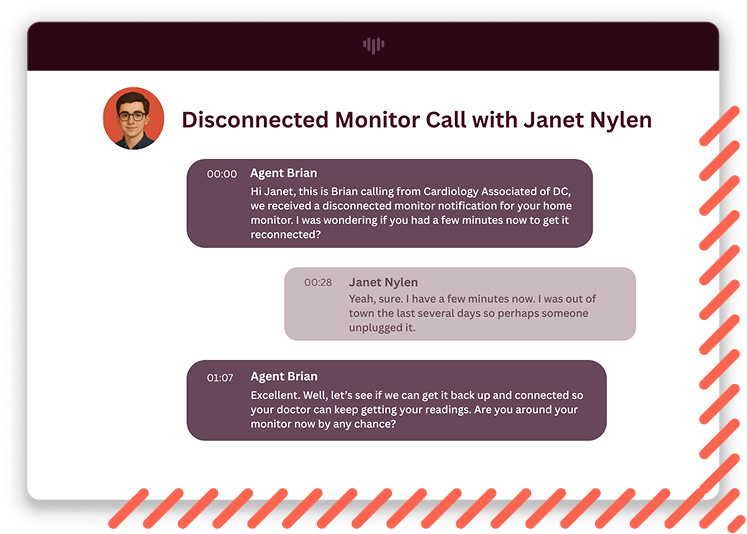Transform your Practice with AI Agents
Rhythm empowers healthcare practices to build, refine, and deploy AI Agents that outperform human staff—slashing overhead, automating routine tasks, and boosting revenue through faster responses, higher connectivity and reduced no-shows.

Core Features

Device Management
Connect and sync data from all major device vendors, optimize billing intervals based on your desired preferences and integrate quickly with your EHR for complete control.

Data Management
Rhythm's Data Cloud empowers you with a robust platform to uncover valuable insights about your patient population, enabling you to deliver exceptional care and tailored treatment plans

Patient Engagement
Design personalized engagement journeys through voice, SMS, email, and direct mail to keep your patients compliant, connected, and actively engaged in remote monitoring.

Remote Monitoring Service
Rhythm’s CRAT-certified device clinicians provide world-class care and customized care journeys for your clinic. Whether you’re enhancing your current team or seeking a new remote monitoring partner, Rhythm delivers unmatched, patient-focused support.
Transmissions processed per year
Billing
compliance
Patients actively monitored
Device connectivity

See Rhythm in action
Maximize clinical capacity, reduce administrative burden, improve remote monitoring adherence, and increase patient satisfaction.
What Makes Rhythm Unique

Transmission Schedule Automation
Rhythm’s Adaptive Transmission Scheduler is the most advanced billing interval management system available. Customize your transmission requirements by device type, manufacturer and even down to the individual patient.

Bi-Directional EHR Integration
Automate and streamline workflows with Bi-Directional API integration with your EHR. The Rhythm platform can synchronize patient data, schedules and check-ins and even drop charges in real-time.

Remote & In-Clinic Capability
Allow remote and in-clinic teams to stay in sync with a single platform to consolidate workflows and create a unified view of each patient across the care spectrum. Collect data from all vendors in real-time and append to the patient record.
Ready to learn more?
Schedule a demo and see how the Rhythm platform can help increase your capacity to care.
